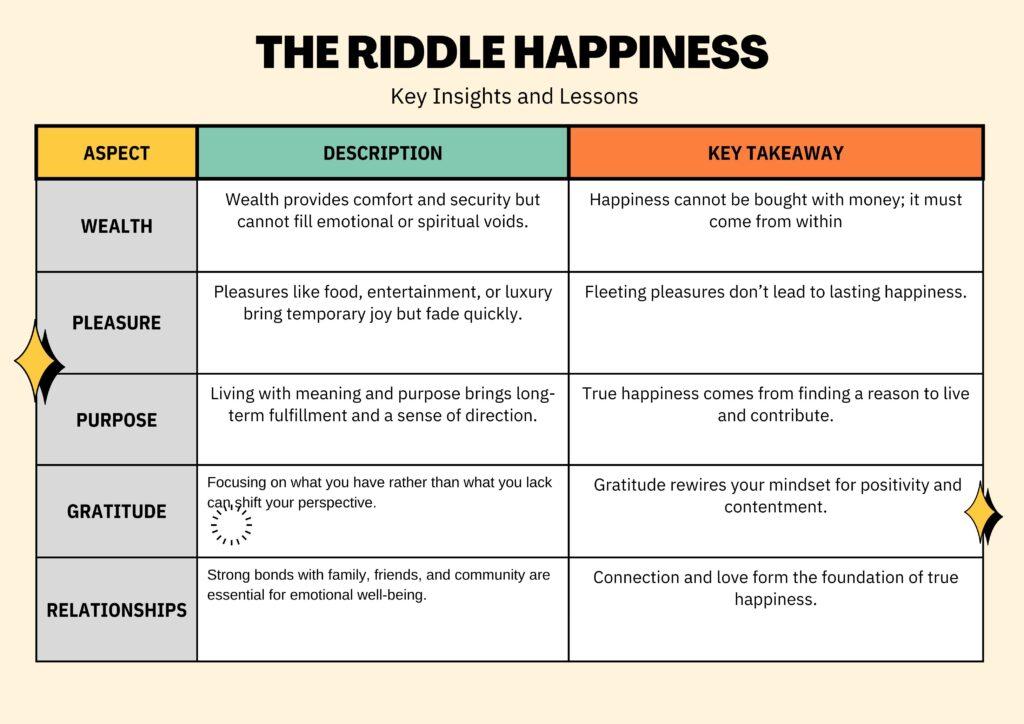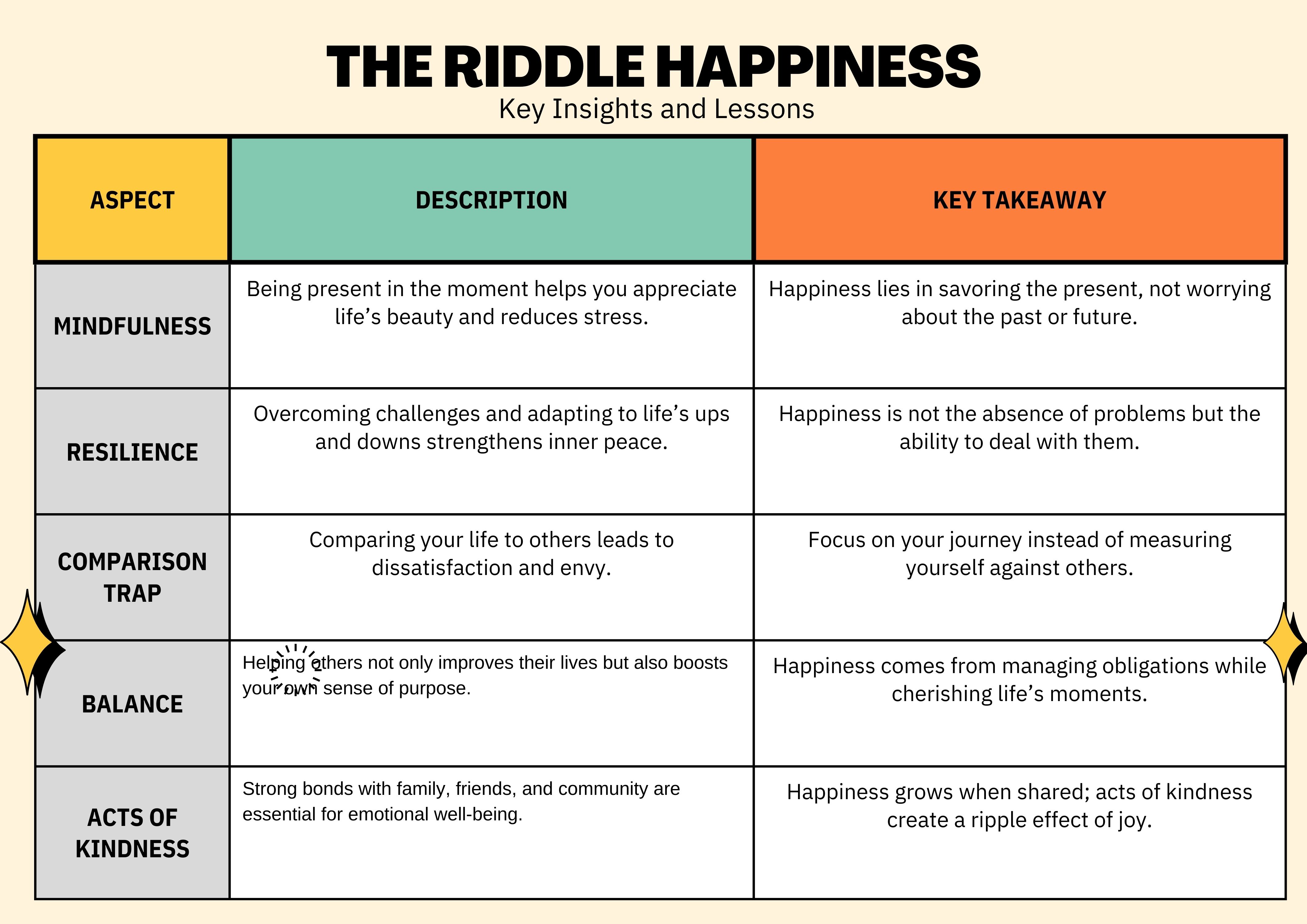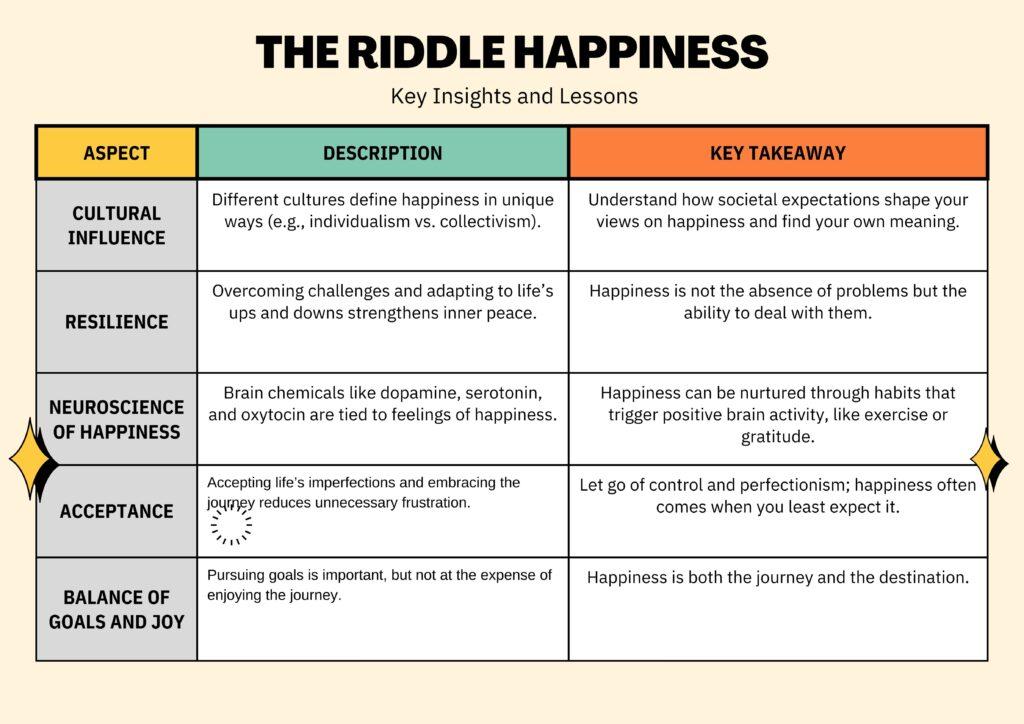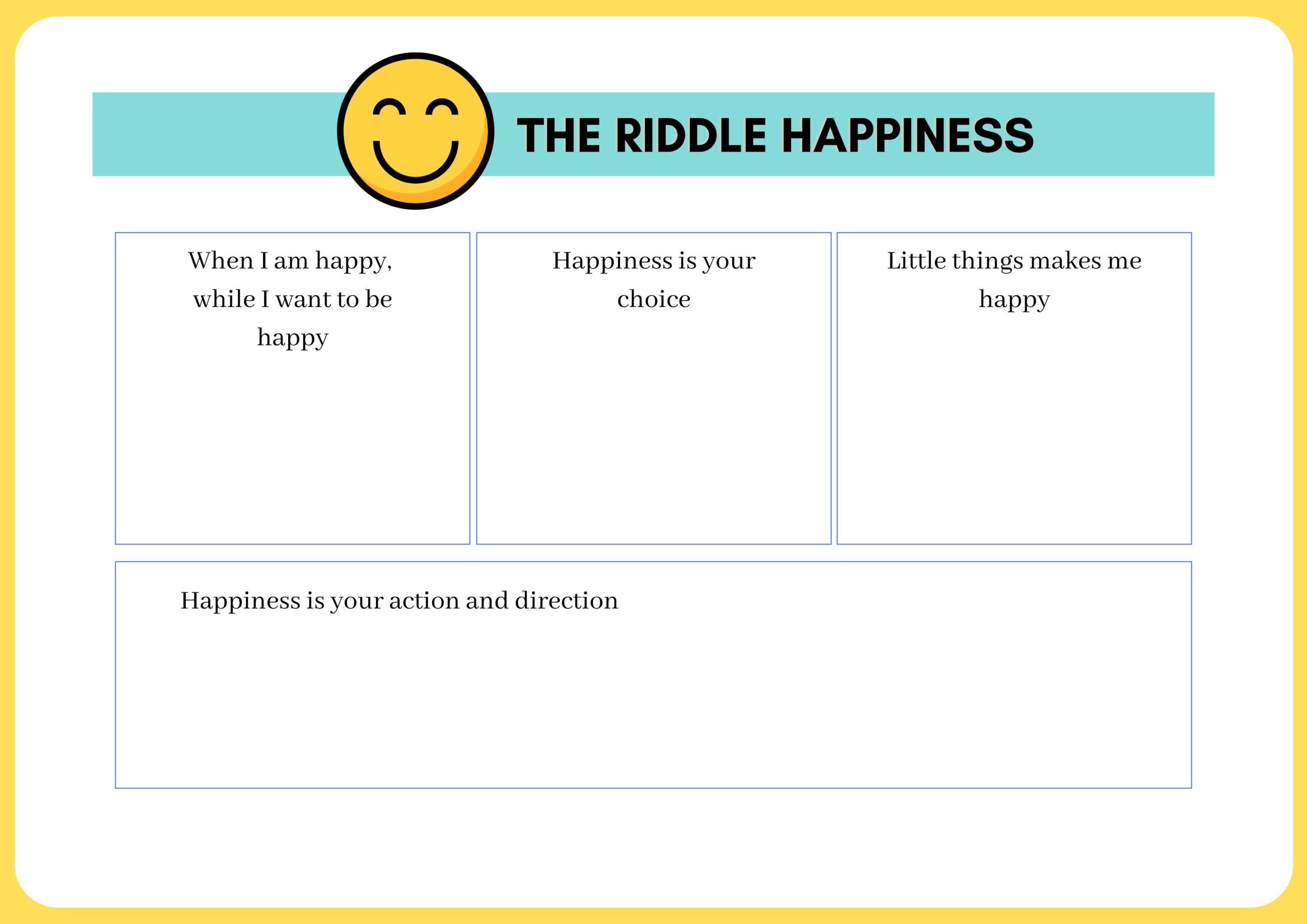The Riddle of Happiness: Unlocking the Secret to a Joyful Life
The Riddle of Happiness
The Riddle:
“I am everywhere yet nowhere, sought by all but grasped by few. I can be found in moments, not in things, in connections, not in collections. I am not a destination but a journey, not a possession but a feeling. What am I?”
The riddle of happiness often poses the question: “What is happiness, and where can one find it?
Explanation: It’s no surprise, then, that solving the riddle of happiness feels like navigating a maze.
Everywhere yet nowhere: Happiness is all around us in daily life, but it’s elusive because it’s not a concrete object or place. It’s in the laughter of friends, the peace of a quiet morning, or the satisfaction of a job well done, but it doesn’t exist as a tangible entity you can hold onto indefinitely.
Sought by all but grasped by few: Everyone desires happiness, but many struggle to maintain it because they look for it in external validations or material gains rather than internal peace or simple joys.
Moments, not things: Happiness is more often found in fleeting moments — a beautiful sunset, a good conversation, a moment of personal achievement — rather than in accumulating possessions.
Connections, not collections: Relationships and interactions with others often lead to more profound happiness than owning things. The joy of feeling connected to someone, sharing experiences, or helping others can be deeply fulfilling.
Not a destination but a journey: Happiness isn’t something you achieve once and then it’s done. It’s an ongoing process, a way of living where you find joy in the journey itself, in learning, growing, and experiencing.
Not a possession but a feeling: You can’t own happiness; it’s an emotional state that comes and goes, influenced by many factors including one’s mindset, circumstances, and actions.
The riddle suggests that to solve the mystery of happiness, one must shift perspective from seeking external sources to cultivating it internally through mindfulness, gratitude, and connection with others. Happiness, therefore, is less about finding it and more about creating and recognizing it in everyday life.



The Riddle of Happiness
Once upon a time, in a bustling village nestled between rolling hills and a sparkling river, there lived a young woman named Elara. Elara was known for her curious mind and restless heart. She had everything one might think they needed to be happy—a loving family, a cozy home, and a job that paid the bills. Yet, she often found herself staring at the stars, wondering why she felt a hollow ache in her chest.
One evening, as she wandered through the village square, she stumbled upon an old, wrinkled storyteller sitting under a gnarled oak tree. His eyes sparkled with wisdom, and his voice carried the weight of countless tales. Intrigued, Elara approached him.
“Why do you look so troubled, young one?” The storyteller asked, his voice like the rustle of autumn leaves.
“I’m searching for something,” Elara confessed. “Something I can’t quite name. I feel like I’m missing a piece of myself.”
The old man smiled knowingly. “Ah, you seek happiness. But tell me, do you know what it is?”
Elara hesitated. “I thought I did. But the more I chase it, the further it seems to slip away.”
The storyteller leaned back and began to weave a riddle into the air:
“I am everywhere yet nowhere, sought by all but grasped by few. I can be found in moments, not in things, in connections, not in collections. I am not a destination but a journey, not a possession but a feeling. What am I?”
Elara’s eyes widened. “Happiness,” she whispered.
The old man nodded. “But do you understand it?”
Determined to find the answer, Elara set off on a journey. She travelled far and wide, seeking happiness in every corner of the world. She climbed mountains, hoping to find it in the breathtaking views. She visited bustling cities, thinking it might be hidden in the excitement of new experiences. She even sought out wise sages and philosophers, hoping they could give her the secret.
Yet, no matter where she went or what she did, happiness always seemed just out of reach.
One day, exhausted and disheartened, Elara found herself in a quiet meadow. The sun was setting, painting the sky in hues of gold and pink. She sat down on the soft grass and closed her eyes, letting the warmth of the sun wash over her. As she sat there, she began to notice the little things—the chirping of birds, the gentle rustle of the wind, the scent of wildflowers.
For the first time in a long while, she felt a sense of peace.
Just then, a child’s laughter broke the silence. Elara opened her eyes to see a little girl running through the meadow, chasing butterflies. The girl’s joy was so pure, so unburdened, that it made Elara smile. She realized that happiness wasn’t something she needed to chase or find—it was already there, in the simple moments she had overlooked.
She thought back to the storyteller’s riddle: “I can be found in moments, not in things, in connections, not in collections.”
Elara returned to her village with a newfound understanding. She began to cherish the time she spent with her family, the laughter shared with friends, and the quiet moments of solitude. She stopped chasing happiness and instead let it find her in the everyday beauty of life.
Years later, Elara became a storyteller herself, sharing the riddle of happiness with anyone who would listen. And whenever someone asked her the answer, she would simply smile and say:
“Happiness is not something you find. It’s something you feel. It’s in the moments you cherish, the connections you nurture, and the journey you embrace. It’s everywhere and nowhere, waiting for you to notice it.”
And so, the riddle of happiness lived on, reminding everyone that the secret to joy was always within reach—if only they paused to see it.
Moral of the Story:
Happiness isn’t a destination or a possession; it’s a state of mind. It’s found in the little moments, the connections we make, and the journey we take through life. Sometimes, all we need to do is slow down and appreciate what’s already around us.

Leave a Reply